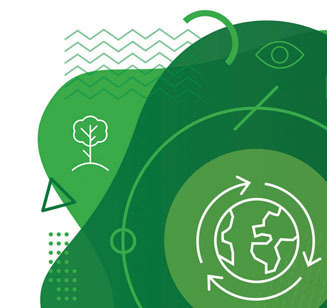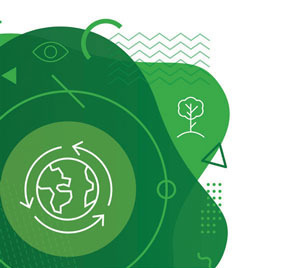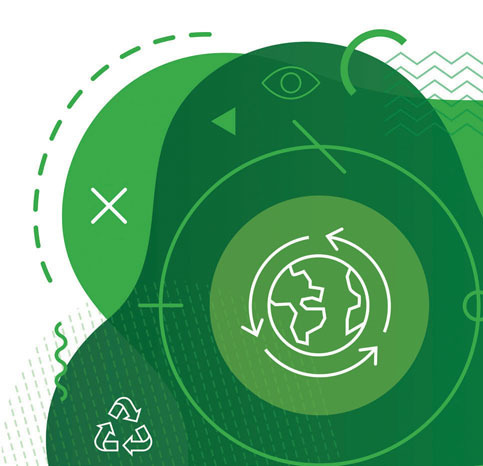GROCERS’ VIEW | Grocery Business Magazine


Q HOW HAS SUSTAINABILITY IN GROCERY EVOLVED FOR YOUR COMPANY?
COSTCO WHOLESALE CANADA
The principles of footprint reduction have been embedded in Costco’s DNA from inception. Our business model requires a narrow focus on keeping our operational costs down. As a result, measuring key performance indicators, such as energy use, water, waste, environmental compliance, greenhouse gas emissions, has been a focus for over 15 years. The concept of sustainability is evolving from a focus on our operational efficiencies, to the broader community of suppliers that we partner with. As our membership base has grown in Canada and around the world, we also have a greater responsibility to ensure we set expectations with respect to sustainability of the products we buy.
PATTISON FOOD GROUP
We are very committed to advancing sustainability initiatives. We’re proud of the work our team has done over the past 30+ years to make a difference when it comes to minimizing waste, promoting healthy lifestyles, and reducing our environmental footprint in all aspects of our operations. Our work toward positive social and environmental impacts started early in the company’s history. From being the first Canadian grocer to offer bulk foods, to prioritizing relationships with our local growers and producers, our track record on social and environmental sustainability is expansive. We continue to view ourselves as a partner, open to testing and piloting better solutions that work for business, customers, and the planet.

LOBLAW COMPANIES
Loblaw aspires to represent positive environmental and social change domestically and abroad. For decades, we have been tracking the carbon footprint of our corporate stores and operations. In 2016, we committed to a 30 per cent reduction of GHG emissions by 2030 from the 2011 baseline. Through advancements in energy management, equipment conversions and reducing refrigerant leaks, we met our 2030 goal in 2020, 10 years early. In 2021, we set our ambitions higher, with a phased approach to reach net-zero emissions across our full enterprise – including corporate, franchised, and associate-owned stores – by 2040. Our plan focuses on four key aspects of our footprint: refrigerants, heating, electricity, and decarbonizing our fleet.
LONGO’S
To transparently showcase our sustainability efforts, we publish an annual sustainability report highlighting our achievements, initiatives, and ongoing commitment to making a positive impact on our planet. Our sustainability journey has seen significant milestones. In 2018, we opened Canada’s first near-net-zero supermarket, which consumes 35 per cent less energy than similar stores and generates 65 per cent of its energy through renewable technologies.
Since 2022, our partnership with Too Good To Go supports the fight against food waste and gets us closer to achieving our goal of reaching 90 per cent landfill diversions by 2025.

Q HOW HAS SUSTAINABILITY IN GROCERY EVOLVED FOR YOUR COMPANY?
And, earlier this fall, Longo’s became the first Ontario grocery chain to offer battery recycling services in all our stores in partnership with Call2Recycle. While significant progress has been made, we’re continuously exploring opportunities for further progress.
WALMART
Sustainability in the grocery industry has become broader and more important. It’s not just about the products we choose or where we source them. It’s also about how we package and deliver products to our customers. It’s no longer enough for retailers to take action in just one of these areas: there’s an expectation to bring a more sustainable approach to all areas of the business.
We believe everyone at Walmart has a role to play in making a positive impact. We believe we’re all stewards of our purpose and our commitment to becoming a more regenerative company, a long-term aspiration that begins by all of us helping accelerate the pace of our sustainability efforts. And we share these success stories internally as a best practice. We know that each of these milestones – big or small – has the potential to inspire someone else within our business to make a change.

Q CAN YOU SHARE AN IMPORTANT INITIATIVE YOUR COMPANY HAS UNDERTAKEN IN THE PAST YEAR TO SUPPORT SUSTAINABILITY?
COSTCO WHOLESALE CANADA
Over the last year, we have concentrated on reconnecting with our suppliers where they live. We are integrating sustainability principles in our plant tours, and asking our suppliers if they are measuring their greenhouse gasses, where they are on the journey to baselining their footprints, and how they will reduce that footprint over time. Suppliers are increasingly comfortable and more open than ever to discuss sustainability programs, as they’ve often launched their own and want to meet Costco’s expectations. Frankly, reducing our greenhouse gasses often leads to reduction in operational costs. With a limited selection of 3,500 items in our warehouses at any one time, we pay close attention to the quality of the goods and how they are made; integrating sustainability is a natural extension of quality control for our buyers.
We also find it is a great opportunity to thank our suppliers for their efforts in reducing packaging, energy, and water use, and for the positive contributions to their own communities. Over the last year, a plant visit often turns into a lively discussion on sustainability. With the forest fires and record high temperatures seen around the world, sustainability is an imperative. Although volume, commodity and freight pricing play a very important role in the cost of goods, reducing packaging, transport, energy, water, and emissions are also important contributing factors in reducing costs to members.

Q CAN YOU SHARE AN IMPORTANT INITIATIVE YOUR COMPANY HAS UNDERTAKEN IN THE PAST YEAR TO SUPPORT SUSTAINABILITY?
PATTISON FOOD GROUP
Our goal is to be a zero-waste company and we work actively toward this, with a commitment to demonstrating continuous improvement, year over year.
Food waste prevention and surplus diversion: All PFG stores are engaged in food waste management initiatives, with the common goal of diagnosis, prevention and, ultimately, diverting surplus food to its best and highest use. Our program is currently diverting approximately 91 per cent of food waste generated at all Save-On-Foods stores. Between 2016 and present, our program has provided over 50 million meals, supported over 1,200 charities, and provided feedstock for nearly 2,000 family farms. Thanks to the diversion of quality surplus food to feed people instead of landfills, this concentrated effort has also helped reduce our emissions by more than 19 per cent since 2016, even with the opening of 28 new stores.
Plastics and packaging: Engaging with local partners to help extend the life and value of our materials is one of the best opportunities for our business to improve our impact while supporting the viability of Canada’s circular economy. Our recycling programs have been very effective, and we continue to recycle more than 90 per cent of plastic film and cardboard that come through our stores. We are exploring opportunities to upcycle our plastic waste streams, specifically our soft plastics and Styrofoam. Pattison Food Group has partnered with Vitacore’s Planet Impact to launch an innovative reusable bag recycling program that will be in all PFG stores mid-November.
Currently, Canadians accumulate over 23 reusable bags per person annually, leading to an excess of more than 900,000,000 bags each year. Existing recycling facilities are not equipped to process reusable bags, leaving Canadian consumers with an accumulation of bags that lack a proper recycling pathway. It is estimated that reusable polypropylene shopping bags must be reused 10-20 times to have a lower environmental impact than single-use plastic bags.
LOBLAW COMPANIES
In partnership with our vendors, we replaced the plastic traditionally used for the corners of banana boxes with recyclable cardboard, eliminating more than 200,000 kilograms of plastic waste in 2022 alone.
LONGO’S
We continued to make strides in achieving our robust targets for reducing greenhouse gas emissions, covering both scope 1 and scope 2 emissions. We also made the commitment that by 2030, 100 per cent of our stores will use refrigerants with a lower global warming potential or a natural refrigerant system.
In 2021, we became the first retailer in North America to exclusively offer Fairtrade bananas. This past year, we’ve honoured this commitment and have expanded our Fairtrade offerings to include coffee, tea and chocolate. We are committed to providing our guests with choices that have reduced environmental and social impacts so they can shop in our stores with confidence. Our Good Jobs Strategy invests in our team members so our business and people can grow together. This past year, we launched our Green Champions Program, a highimpact training program for team members to build sustainability knowledge, explore ways to protect the environment, and influence and drive change in-store.

Q CAN YOU SHARE AN IMPORTANT INITIATIVE YOUR COMPANY HAS UNDERTAKEN IN THE PAST YEAR TO SUPPORT SUSTAINABILITY?
WALMART
This year, we’ve been focused on accelerating our efforts on our ambitious commitments, including waste reduction and diversion, sourcing commodities more sustainably (including textiles, palm oil and seafood) and lowering emissions. We’re seeing associates and our customers incorporate sustainable living into their everyday – it’s encouraging and we know that we’ll go further working together.
Packaging: In line with global efforts, we’re working to ensure our Walmart Brand packaging is designed for recycling. Walmart has a global goal of making the packaging on all Walmart Brands products recyclable, reusable or industrially compostable by 2025. Our amazing team of private brand developers continue to work with suppliers to source items more sustainably and to continue to improve packaging. For example, we’ve launched mono-material polyethylene pouches for some of our frozen fruit offerings. These pouches are widely recyclable in Canada. We’ll continue to launch additional SKUs throughout the remainder of the year 2023.
More sustainable beef and beef packaging: In 2021, we announced our commitment to purchasing 1.5 million pounds of beef sourced from certified sustainable farms and ranches according to standards set by the Canadian Roundtable for Sustainable Beef. This year, we “beefed up” this commitment and will achieve sourcing 4 million pounds of beef from certified sustainable Canadian farms and ranches over the calendar year. Walmart Canada is also transitioning various beef items to more recyclable packaging, with the potential to avoid approximately 13 million trays going to landfills annually.

Q WHAT ARE YOUR COMPANY’S KEY SUSTAINABILITY PILLARS?
COSTCO WHOLESALE CANADA
Our first pillar is people and communities to ensure inclusion, employee development, communities, supplier diversity, and human rights. Our second pillar is ensuring operational efficiency via construction, transportation and logistics, energy and refrigeration, environmental compliance, and minimizing waste and water use. We continue to reduce our packaging and to close the gap on landfill waste. Our third pillar is ensuring our merchandising remains strong by respecting animal welfare, impacts to land and water, and sourcing in a way that is respectful of the environment.
Our sustainability program will increasingly focus on what we buy, meaning how it is made, shipped, and how that footprint is communicated to the member. Costco has adopted targets for reduction of our greenhouse gasses in our operations and has a public Climate Action Plan for scope 1, 2, and 3 emissions. We’ve started in-depth conversations with our suppliers on how sustainability is integrated into their operations, and in turn, how their actions impact Costco’s own footprint.

Q WHAT ARE YOUR COMPANY’S KEY SUSTAINABILITY PILLARS?
PATTISON FOOD GROUP
We align our sustainability strategy to areas where we can make the most impact to benefit our planet, and to better serve our customers. Our aspirational goal is to be a zero-waste company: zero food waste, zero plastic waste, zero energy waste (carbon emissions).
That’s easy to say, really hard to do, and important to get right. So we start by setting functional targets toward that aspirational goal. And then get to work where we know we can make a difference.
LOBLAW COMPANIES
We are driven by our purpose and goal of creating long term value for our business and communities. Our approach to addressing ESG issues is focused on two priorities where we can make the biggest impact: Fighting Climate Change and Advancing Social Equity. These pillars are underpinned by five key commitments:
- Achieve net-zero by 2040 for our enterprise Scope 1 and Scope 2 emissions, and Scope 3 by 2050.
- Reduce plastic waste by making all control-brand and in-store packaging recyclable or reusable by 2025.
- Send zero food to landfill by 2030.
- Achieve representation goals for management, executives and our board of directors by the end of 2024.
- Create a ripple effect of inclusion and empathy in our communities by deploying an inclusion training program to our workforce of approximately 200,000 Canadians by the end of 2024.

We are also committed to advancing the health of women and children.
LONGO’S
Sustainability has been an integral part of Longo’s values and mission. Our focus encompasses Environmental Stewardship, Responsible Sourcing, and Healthy, Happy People.
Environmental Stewardship: We take our responsibility to the environment seriously. We strive to minimize our footprint by concentrating on waste reduction and diversion, reducing greenhouse gas emissions and operating our buildings sustainably.
Responsible Sourcing: We are dedicated to partnering with suppliers. Our goal is to procure products that are responsibly sourced, made with care, and fairly priced.
Healthy, Happy People: Our commitment goes beyond products and extends to the empowerment, engagement, and enrichment for our team members and guests. They are at the heart of everything we do, including our sustainability journey. We actively work towards enriching our communities through programs that enable positive change.

Q WHAT ARE YOUR COMPANY’S KEY SUSTAINABILITY PILLARS?
WALMART
Building on years of leadership around tackling environmental issues, supporting communities and creating opportunities for people, Walmart is on an ambitious journey to become a regenerative company – that places nature and humanity at the centre of our business practices. Becoming a regenerative company means:
- Changing the way we go about our business to have a net-positive impact on people and the planet;
- Being a part of the solution to challenges like inequity, climate change and nature loss through the business, in a way that builds trust among our stakeholders.
Our four pillars:
Climate & Energy: Decarbonizing our operations and supply chains, including building a value-creating, emissions-reducing platform for ourselves, our customers, and our suppliers to achieve our overall goal of zero emissions across global operations by 2040. In Canada, we have an ambition to transition our fleet to alternative power.
Nature: Aiming to help protect, manage or restore 50 million acres and 1 million square miles of ocean by 2030 with the Walmart Foundation.
Waste: Eliminating waste and champion recycling across our stores, operations and supply chains. Walmart is working toward a goal of zero waste in our operations in Canada by 2025. In 2022, we diverted 89 per cent of our waste from landfill in Canada – just short of the 90 per cent target globally recognized as zero waste. Our goal is to reduce operational food loss and waste 50 per cent by 2030 (against 2016 baseline) in support of the Champions 12.3 10x20x30, CGF Food Waste Coalition of Action, and Pacific Coast Food Waste Commitment (PCFWC) initiatives. At the end of 2022, Walmart Canada had achieved approximately a 29 per cent reduction against this baseline.
People in supply chains: Promoting the wellbeing of people in supply chains, including creating economic opportunity and addressing systemic risks in collaboration with suppliers.
Q WHAT ARE THE NEXT STEPS FOR GROCERY AND HOW IS YOUR COMPANY PREPARING FOR IT?
COSTCO WHOLESALE CANADA
The largest challenge for Costco and for retailers will be measuring our environmental footprint from the farm to the table, from shop floor to end of life. While international standards have only recently been adopted to ensure an apples-to-apples comparison of metrics for a global supply chain, suppliers will be challenged to provide environmental data in a consistent manner that is accurate and representative. We expect measuring the environmental impact of a supplier’s operations will be much easier for vertically integrated companies than for companies that rely on global ingredients, suppliers and sources to bring their items to market. Our approach will be one of collaboration and respect for our suppliers. We will continue to do the right thing for our members, employees, suppliers, and communities where we do business by being a driving force for continuous improvement. Our expectation is that the highest quality at the right price will increasingly include greenhouse gas efficiency.

Q WHAT ARE THE NEXT STEPS FOR GROCERY AND HOW IS YOUR COMPANY PREPARING FOR IT?
PATTISON FOOD GROUP
Our customers are looking to us to be advocates for sustainability across our business. We are committed to doing our part to take responsibility for what we generate. Innovation and collaboration are critical to the success of any company, and this is no different. We work with our industry partners to bring the right products and solutions to market and promote their benefits; we also trust them to be bringing us their best solutions and latest thinking.
LOBLAW COMPANIES
While our own enterprise operating footprint is large, the emissions generated throughout our supply chain (scope 3) will have an even greater impact on the environment, and will be integral to achieving our goal of net-zero by 2050.
This year, we’ll be opening our first low-carbon Shoppers Drug Mart in Kelowna, with more low-carbon grocery and pharmacy locations planned for 2024 and beyond. The carbon footprint of these stores will be ultra-low, thanks to optimized operating technologies and processes using electric heat, and refrigeration systems using natural refrigerants. Additionally, before the end of this year, we will be publishing additional details on our plans to achieve net zero by 2050 to ensure transparency to our stakeholders. We are very excited about our plan, which aligns with the Paris Agreement limiting global temperature rise to 1.5℃ and has also been submitted for validation by the Science Based Targets initiative (SBTi).
LONGO’S
As we look into the future of the grocery sector, one clear focus stands out – reducing plastic waste. We have made the appropriate changes and transitions to meet Canada’s Single-use Plastics Prohibition Regulations and have been exploring innovative solutions when it comes to plastics and packaging in store.
WALMART
There’s been a shift in thinking within the industry towards more circular models. We’re asking more questions about the full life cycle of products and our supply chain and we’re exploring reuse, refill and return models for various products available in our stores. Plus, as the country prepares for regulations around reducing single-use plastics and, in particular, single-use plastic shopping bags, we’re continuing to transition alongside our customers and we’re looking into adopting more circular or innovative models.

Source: grocerybusiness.ca

